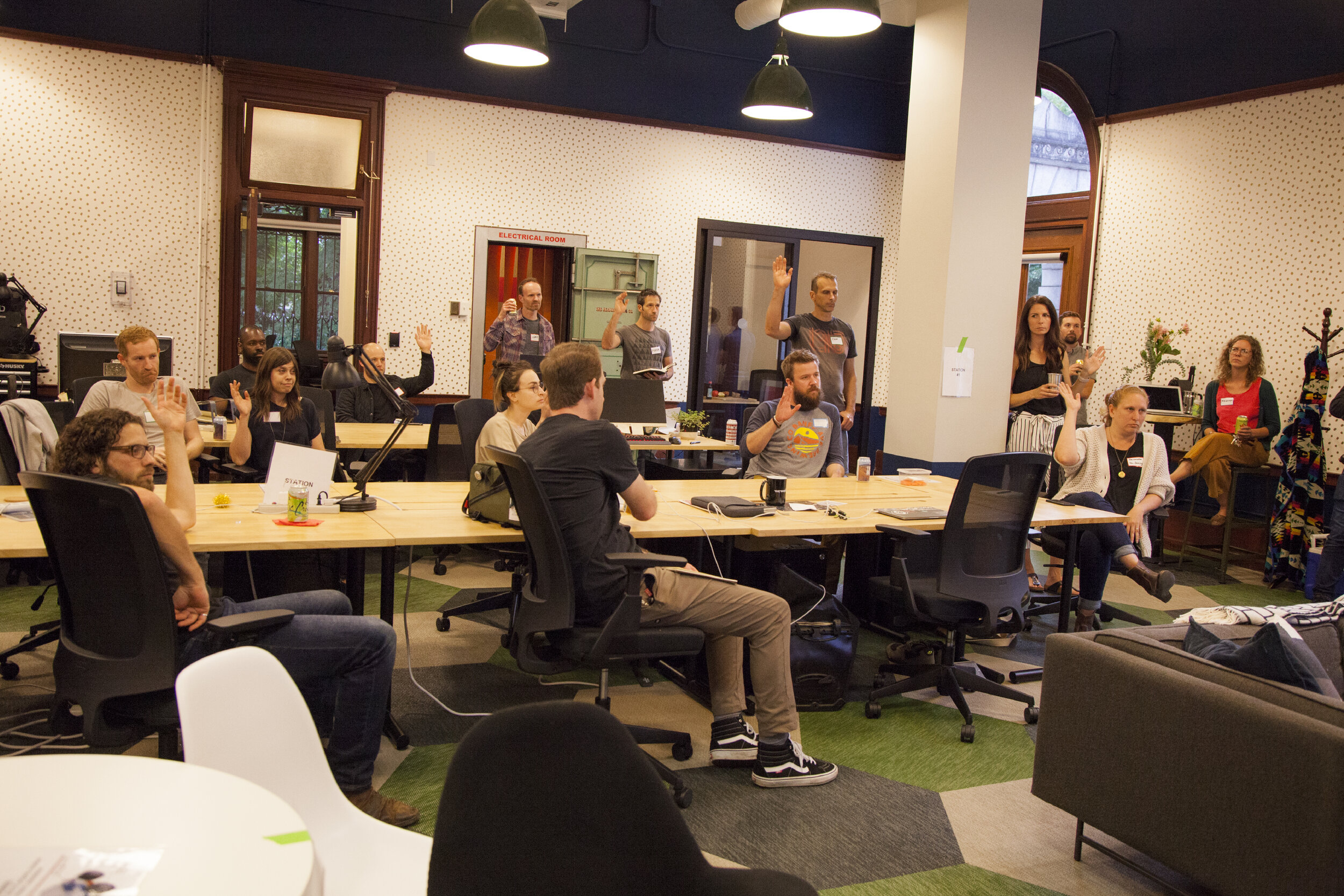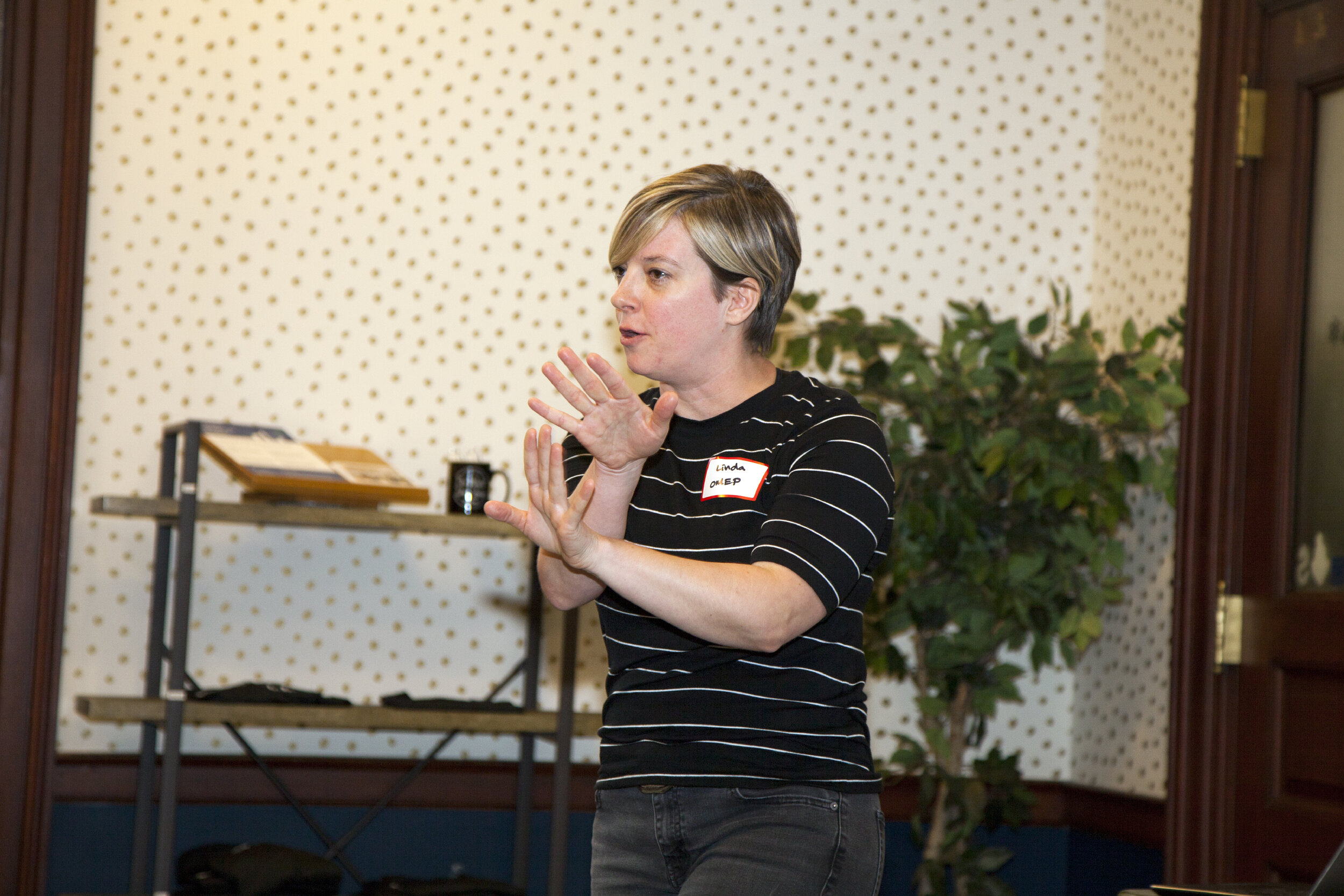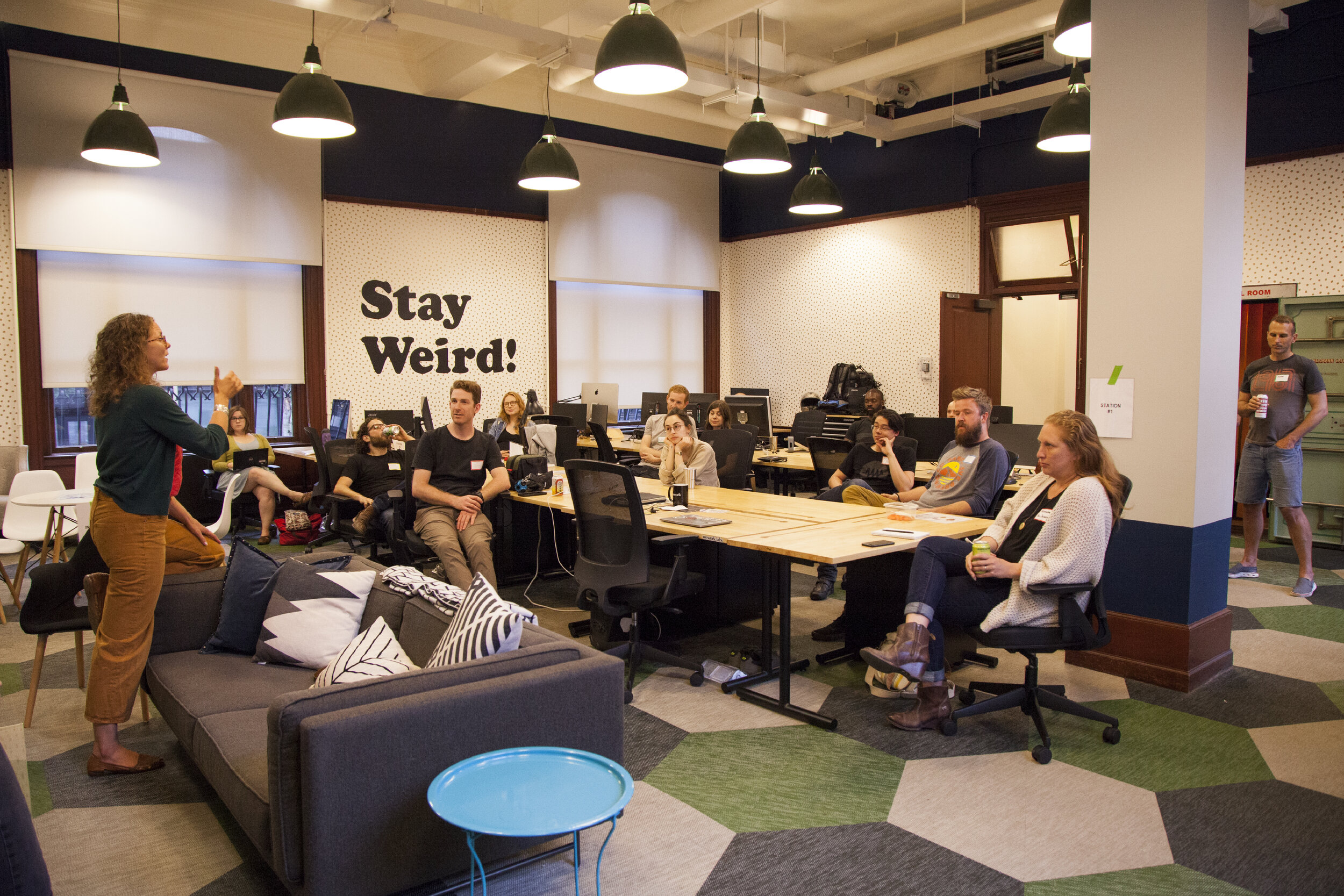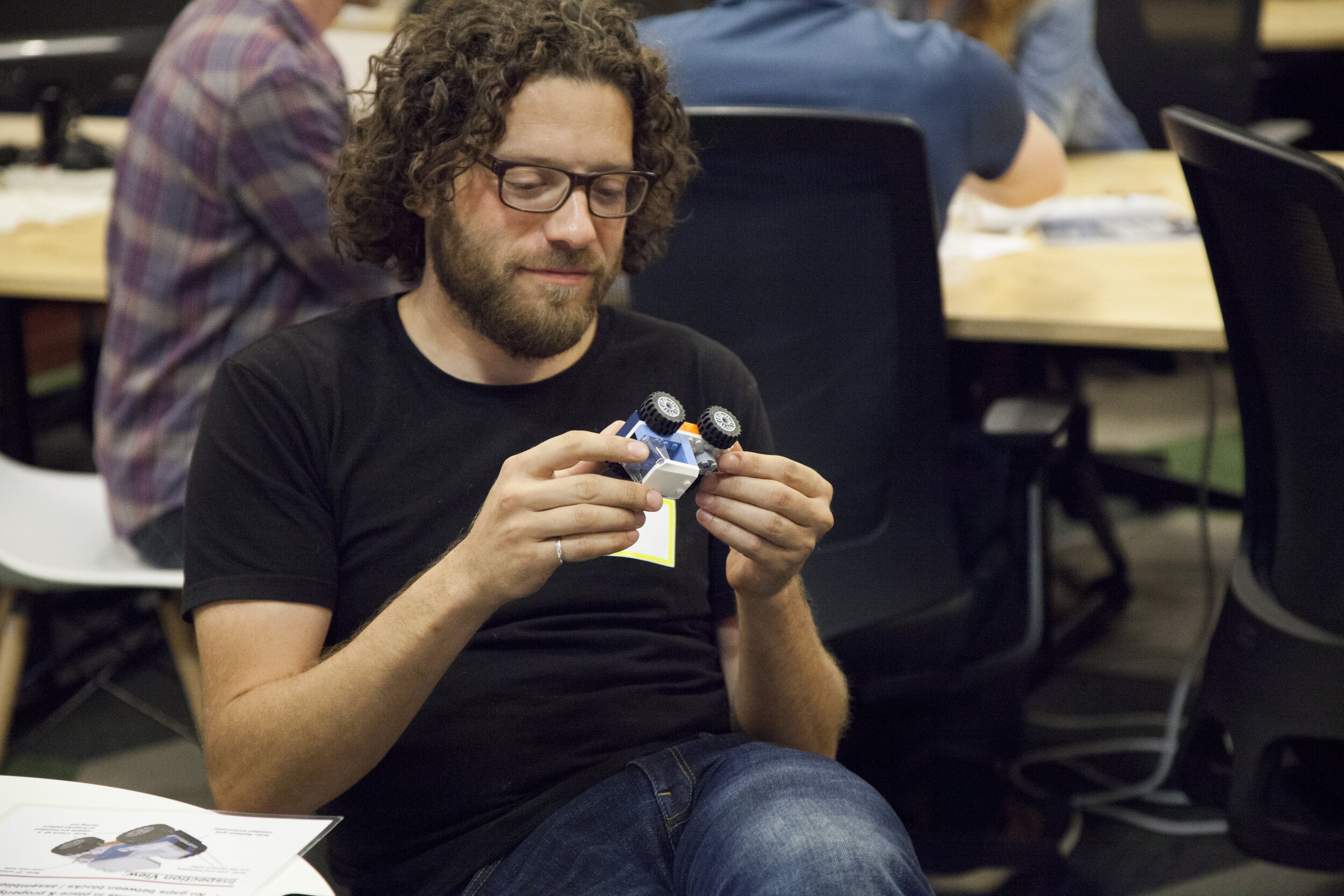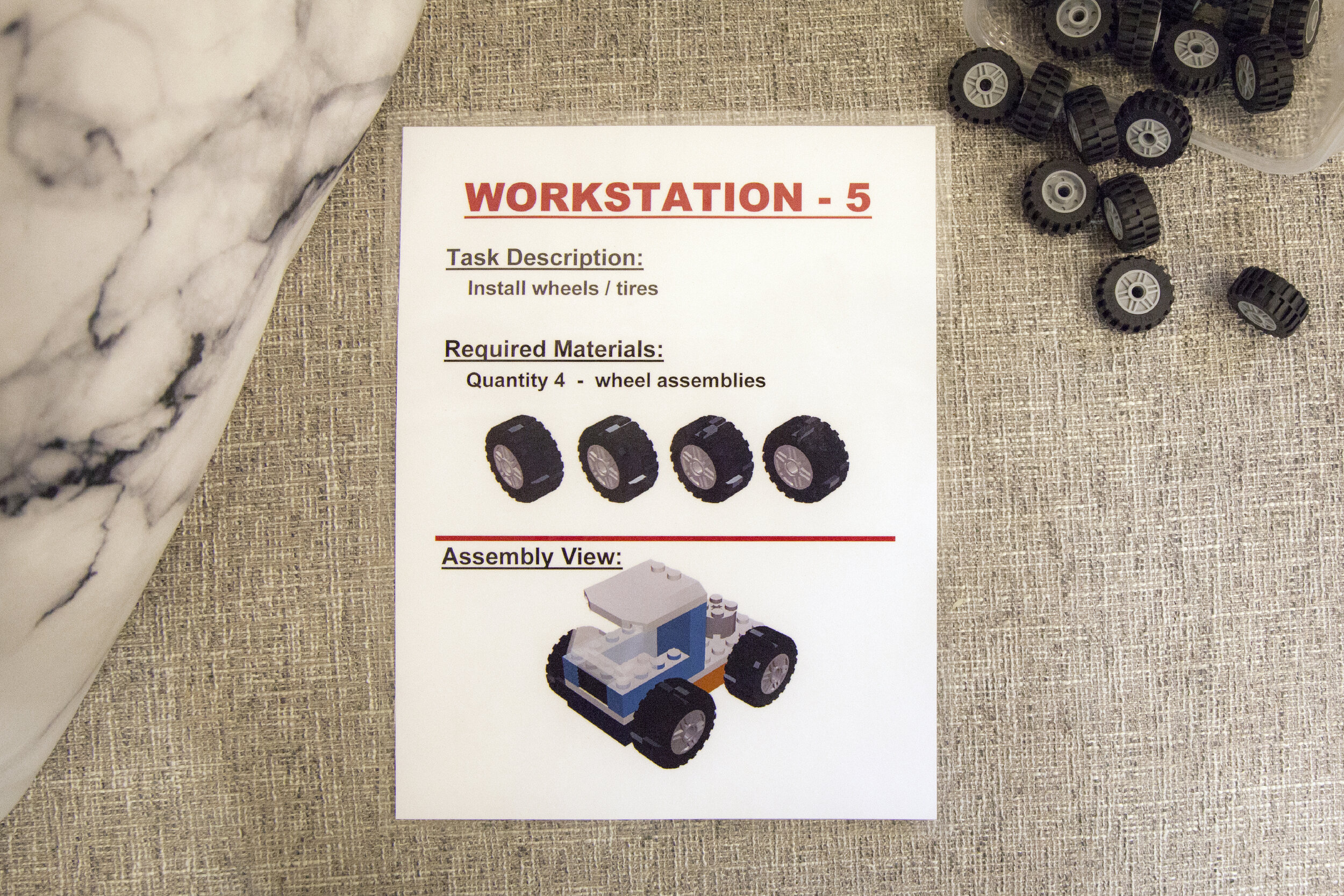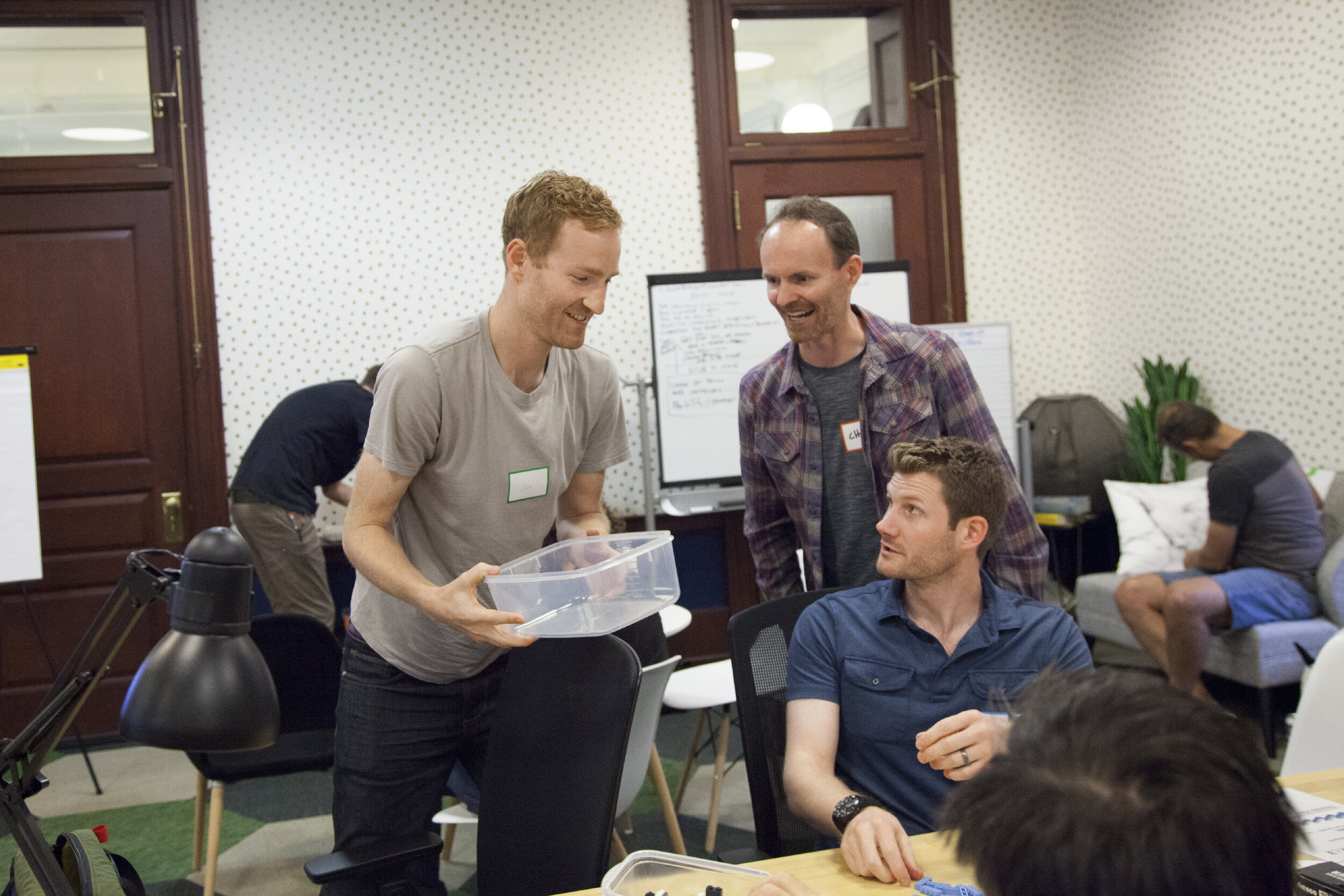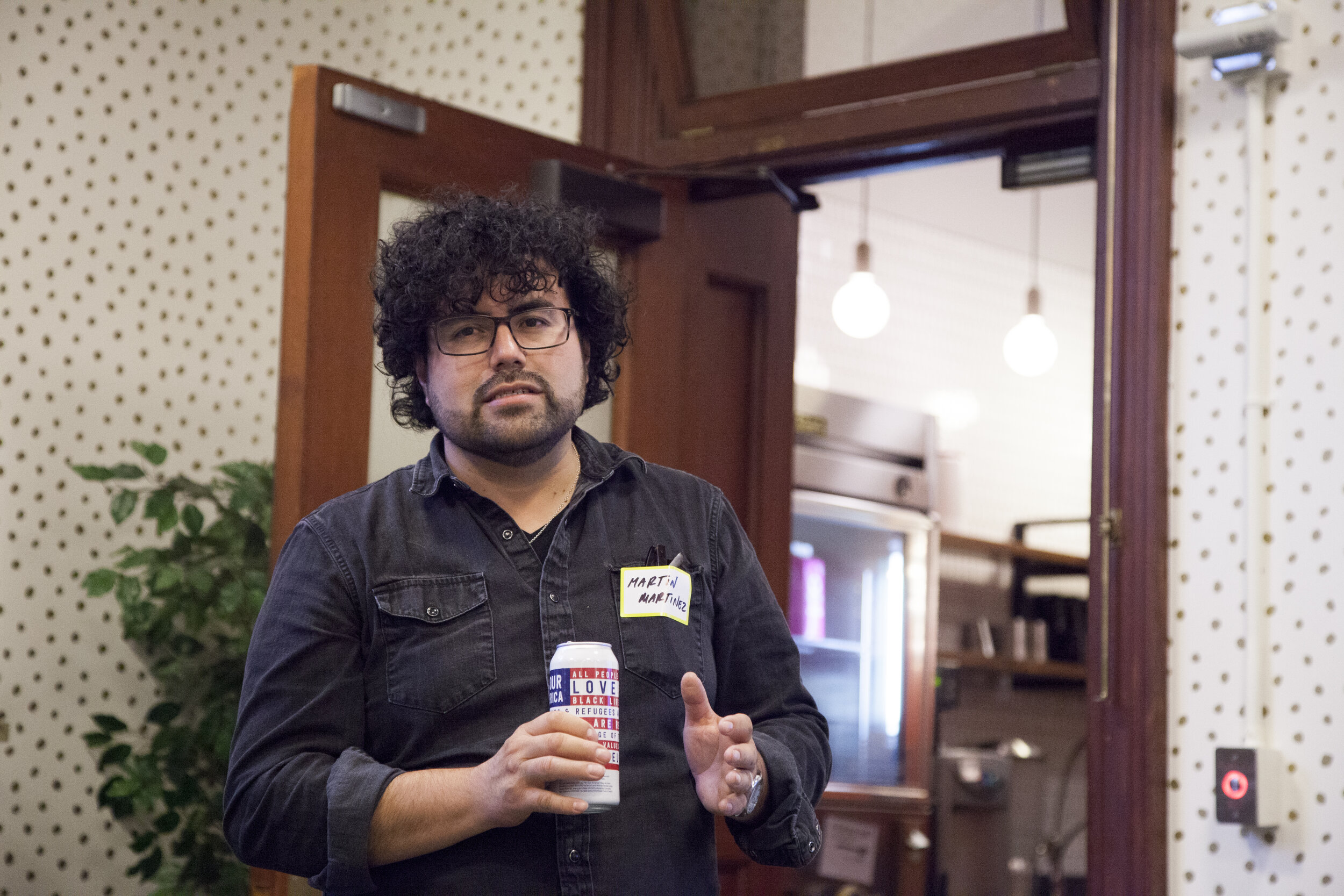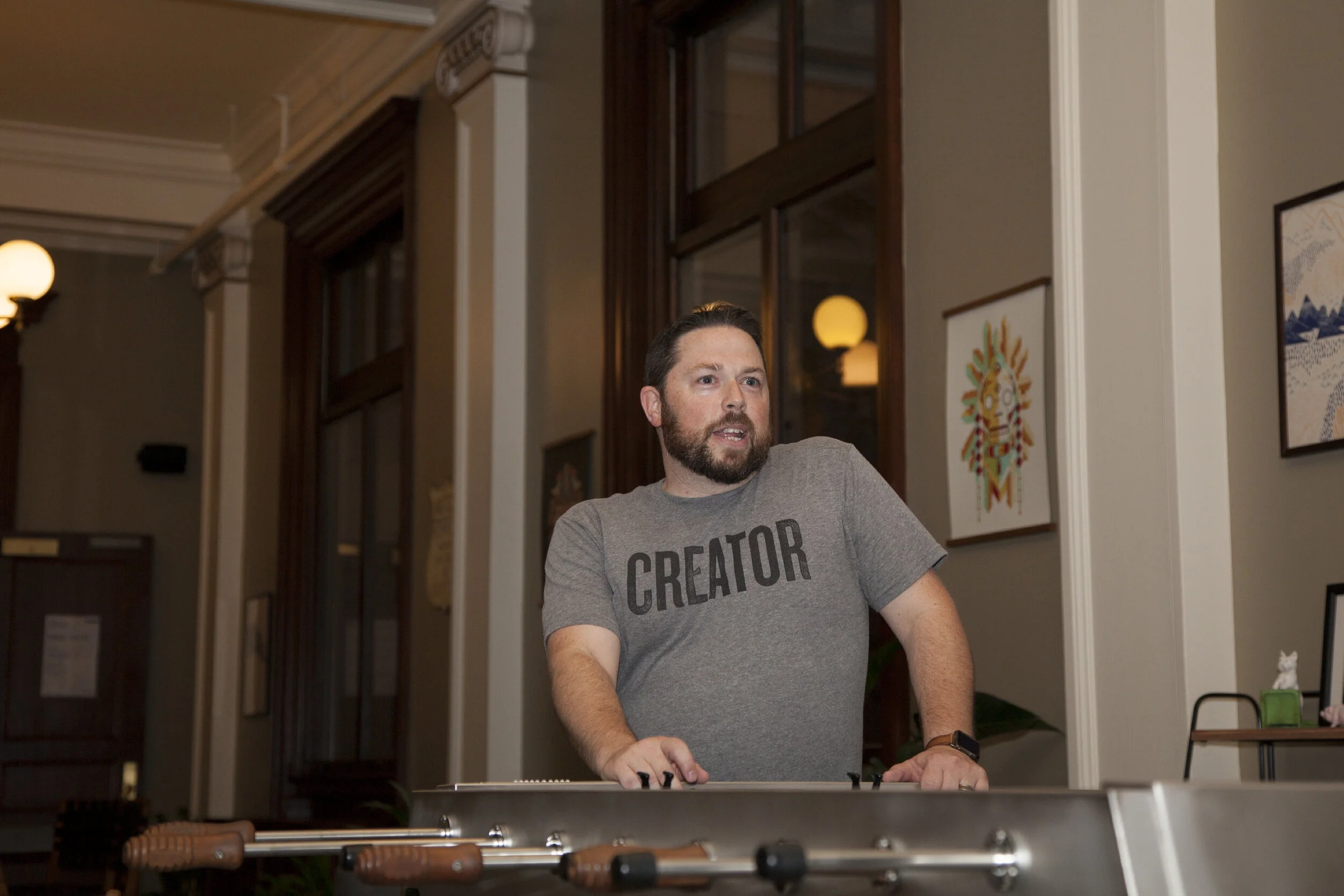Learning with Legos
When you hear the term “Lean Management,” you might jump to the conclusion that the model is all about thinning the herd—cutting jobs and imposing more responsibilities on the remaining workforce. But make no mistake: Lean is really about fine-tuning processes, eliminating waste, and maximizing productivity and quality, all while achieving the highest morale.
All of this was explained to Portland Made members on Thursday, September 12, at the stunning U.S. Custom House, which now houses one of Portland’s four WeWork locations. Linda Wechsler of OMEP (Oregon Manufacturing Extension Partnership), an organization that has helped makers including Orox Leather, The Joinery, and Scout Books, walked attendees through the central tenets of Lean, which she defined as the systematic and relentless elimination of waste in all its forms in pursuit of:
The best quality
Lowest cost
Shortest lead time
Best safety
Highest morale
She then went on to define the different types of waste (eight in all) that plague manufacturers large and small, including excess inventory, excess transportation (moving product from one place to another), defects, overproduction, over processing, excess motion (excessive human movement such as searching, reaching, or stacking), waiting (for parts, machines, information, or supplies), and underutilized talent.
Next, attendees got to participate in a simulation, building Lego trucks to fulfill a demand of 20 in 5 minutes. But there were some stipulations: No talking between production stations was allowed, and only one person was allowed to replenish inventory. Turns out, without collaboration and being empowered to think outside of the box (two things Lean strongly encourages), participants weren’t even able to complete one acceptable truck. Had time allowed, Wechsler said, we would have repeated the simulation with some minor tweaks (for example, more even distribution of truck parts between stations and eliminating processes that the customer didn’t value). Results in past groups, she assured us, have been far better the second time around, with some simulations even meeting the 20-truck goal.
After the hands-on portion of the evening, Wechsler invited Martin Martinez, General Manager of Orox Leather, to speak about his own experience with OMEP and Lean optimization. Martinez shared with the group photos of his shop, including displays of the visual management that is another fixture of Lean: Par sheets were prominently posted above work stations, giving employees very clear directions on production expectations.
Martinez had us all laughing as he lamented the fact that he wished he’d figured some of these systems out sooner, speaking to the hearts of many makers who find themselves “in the weeds,” as he said, trying to “do it all” so much that they often miss the bigger picture.
Before attendees were invited to tour the WeWork space, Wechsler shared some additional resources on Lean, including The Lean Enterprise Institute and The Lean Bakery, an engaging introduction to the methodology focusing on a Spanish baker’s transformation and expansion of his business. Initially, Juan Antonio Tena thought he needed to increase his production space, but instead of investing that money (and possibly going bankrupt in the process), he began experimenting with eliminating waste and was able to maximize his productivity (and profits!) in his existing space.
To close out the evening, WeWork Labs’ Josh Carter showed off the stunning Northwest Portland space, which currently houses 1,100 desks in varied spaces, from open concept shared spaces to assigned desks to private offices. If you’re currently on the hunt for a workspace, take note: WeWork is offering a 20 percent discount on desk space to Portland Made members!
Our next two events are for Portland Made members only. Not a member, yet? Consider joining…
__
Words by Katey Trnka
Photography by Sarah Toor





